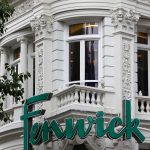Scrapping best before dates and plastic packaging could prevent 14 million shopping baskets’ worth of food from going to waste, a charity has recommended.
Doing so would empower consumers to buy the right amount – avoiding buying bigger packets than they need – and to judge themselves when items were still fine to eat, according to waste reduction charity Wrap.
Its chief executive Marcus Gover called the research a “game-changer in the fight against food waste and plastic pollution”.
He said they had “demystified the relationship between wasted food, plastic packaging, date labels and food storage”.
Read more:
Ancient ‘gleaning’ practice saves leftover crops to tackle food poverty
The study is proof that plastic packaging doesn’t necessarily prolong the life of fresh produce, but instead can increase waste, he said.
Around 9.5 million tonnes of food is wasted in the UK every year, according to previous Wrap figures, with more than 85% coming from households and food manufacture.
Weaning UK off fossil fuels, not increasing domestic production, best way to avoid high energy bills, climate advisers say
Climate change expected to make destructive flooding worse with more lives put at risk
National Portrait Gallery ends 30-year partnership with oil giant BP
The charity’s calls for retailers to “rethink” how they sell uncut fresh produce follow an 18-month study into five commonly wasted items – apples, bananas, broccoli, cucumber and potatoes – stored in the original packaging and loose, and at different temperatures.
It found produce good to eat well after the best before date, with apples lasting at least two and a half months after if stored at 4°C, and broccoli staying fresh for more than two weeks afterwards.
Selling those items loose and removing the best before dates could save 100,000 tonnes of household food waste, more than 10,300 tonnes of plastic and 130,000 tonnes of CO2 equivalent a year, Wrap found.
Read more:
How search for five million Legos off Cornwall uncovered underwater world of plastic toys
Susan Jebb, chairwoman of the Food Standards Agency, said businesses should use date labels sparingly and when necessary to help shoppers reduce the risk of food-borne illnesses.
“A best-before date is about quality which means the food will be safe to eat after this date, even if it may not be at its best,” she said, whereas use-by dates should be reserved for food like meat and salad which can become unsafe more quickly.
Shoppers are concerned about the amount of plastic supermarkets churn out and how much food goes uneaten, according to consumer group Which?
Supermarkets should eliminate unnecessary plastic and make own-brand packaging easily recyclable, but consumers can nudge progress by choosing unwrapped produce over that wrapped in plastic, Which? recommends.
Watch the Daily Climate Show at 8.30pm Monday to Friday on Sky News, the Sky News website and app, on YouTube and Twitter.
The show investigates how global warming is changing our landscape and highlights solutions to the crisis.






















